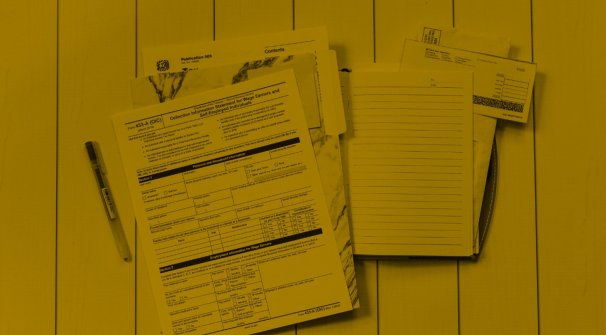The following changes came into effect on 31 October 2022:
- Remuneration of charity trustees
- Fundraising appeals (and restricted funds)
- Power of the Charity Commission and court to make Schemes
- Extension of ‘trust corporation’ status
We will be publishing updated Briefing Papers covering these in more detail shortly.
1. Remuneration of charity trustees providing goods or services to charity
Charity trustees are not permitted to make any gain from their position as trustees. Consequently, the starting point is that they cannot be paid for the provision of goods or services to their charity (such as building works provided by their building company, or legal or accountancy services to the charity provided by their own firm). These restrictions are sometimes overridden in limited respects by the charity’s governing document, with the approval from the Charity Commission – usually at the point of registration of the charity.
The Charities Act 2011 provides for a statutory relaxation in respect of services, where certain conditions are complied with:
- There is a written agreement for remuneration and the remuneration is reasonable;
- The agreement must be in the best interests of the charity;
- The charity trustees receiving remuneration are a minority;
- There is no prohibition of trustee remuneration in the governing document.
There was no comparable relaxation in respect of the provision of goods. Charities Act 2022 extends this relaxation to the provision of goods, and to goods and services provided together, with the same safeguard conditions as set out above in relation to the provision of services by a charity trustee.
Provided that the proposed payment is not expressly prohibited by the charity’s governing document, the statutory power is in addition to any enabling power in the governing document and can be relied upon without the need to separately refer to the governing document itself.
The position remains that the statutory powers above do not permit a trustee to be paid for provision of services as a trustee, nor to be paid as an employee of the charity. Separately, changes are made to the awarding of ‘equitable allowance’ to a trustee (but not any persons connected with the trustee) who is in breach of their fiduciary duty to their charity. These changes are largely technical and are not covered here.
2. Fundraising appeals (and restricted funds)
- Fundraising appeals – ‘Initial failure’
Funds raised for a specific purpose must be used for that purpose[1]. On occasion, that original purpose cannot be fulfilled. For example, insufficient funds are raised (this is referred to as an ‘initial failure’). In this case, until now, the funds would be subject to the Charities (Failed Appeals) Regulations 2008 and would usually have to be returned to the original donors. These Regulations are now repealed.
The 2022 Act amends Charities Act 2011 to determine the necessary actions where an appeal fails.
In any of the following four circumstances the funds raised can instead be used for ‘cy près’ (that is for other, similar) purposes:
- Where the charity trustees believe that the donor has given a total of £120 (excluding Gift Aid) or less in their charity’s financial year – unless the donor states at the time of making their gift that their donation should be returned if the appeal fails.
- A donor cannot be identified or cannot be found after ‘agreed actions’ have been taken. Agreed actions are those agreed between the charity trustees and the Charity Commission as being reasonable actions to identify and find donors.
- Proceeds of cash collections or other means of collecting funds or fundraising that do not distinguish one gift from another. This applies retrospectively to appeals that failed or donations given prior to commencement of the new provisions.
- An Order of the court or Charity Commission directs that it is unreasonable to incur expense to, or unreasonable for donors to expect, the return of their donations.
The amendments outlined above apply to donations given prior to the passing of the Act as well as subsequently, even if the appeal was launched or failed prior to commencement of the Act.
Where the funds (or part of the funds) fall within any of the above four circumstances, it is no longer necessary for the trustees to seek a Charity Commission Scheme, they can use the funds ‘cy près’, by the majority of trustees passing a resolution:
- to use the funds for reasonably similar purposes as the original purpose for which the funds were raised, and
- which are suitable and effective in the light of current social and economic circumstances.
However, if the value of the funds exceeds £1,000, the trustees must send a copy of their resolution, together with a statement of the reasons for passing it, to the Charity Commission. In this case, the resolution will not take effect until the Commission consents to it in writing.
If the funds (or part of the funds raised) do not fall within any of the above four circumstances, the trustees must either:
- return the funds (or part of the funds) to the original donors, or
- seek a ‘cy près’ Scheme from the Charity Commission.
Example: A church launches a fundraising appeal seeking donations for a much-needed internal refurbishment of their premises. The cost has been quoted at £20,000 and due to their nature, the works will have to be done in whole, not in part. The church raises £10,900 from the appeal comprising two donations of £5,000 each and 90 donations of £10 (and no one person gave more than £120). In these circumstances, the trustees are able to apply £900 of the fund ‘cy près’ simply by passing a trustees’ resolution. This is because the £10 donations fall within the four circumstances. However, the two donations of £5,000 cannot be applied ‘cy près’. The trustees must either return these donations to the donor or apply to the Charity Commission for a Scheme.
If instead of raising £10,900, the church had raised £11,100 with 110 donations of £10 instead of 90 donations, the trustees would need to send a copy of their resolution and statement to the Charity Commission. In this case, the resolution will not take effect until the Commission has consented.
- Fundraising appeals – ‘Subsequent (or supervening) failure’
Initial failure can be contrasted with ‘subsequent failure’. Subsequent failure applies where a surplus remains after the particular purposes of the fundraising appeal have been achieved. Since the original purposes have been fulfilled, funds are not returned to the original donors. But if the surplus funds are locked and cannot be applied for the original purposes, then there may be a need to apply them ‘cy près’, as above. This can be achieved by a trustees’ resolution and, if the funds are over £1,000, following consent of the Charity Commission, as set out above in relation to initial failures.
3. Power of the Charity Commission and court to make Schemes
‘Schemes’ are legal arrangements that change or supplement the provisions that would otherwise apply in respect of a charity to a gift to charity. In the past, there has been doubt as to whether or not the court or Commission’s power to make a scheme extends to corporate charities. The 2022 Act removes this doubt. These powers apply to charitable companies, CIOs or any other charity (apart from statutory or Royal Charter charities) and this is deemed to have always been the case.
Trust Corporation status authorises an incorporated charity to act as a sole trustee (rather than acting with one or more other trustees). Having this status enables the charity to hold land and deal with it by giving a valid receipt to a purchaser. It can also be important when unincorporated trusts convert and transfer their property into a new incorporated charity (including a charitable incorporated organisation (CIO)) or merge. If the predecessor charity held permanent endowment or special trust property then, post incorporation or merger, the land and property so held does not form part of the corporate property of the transferee charity but will be held as sole trustee by the ‘corporation’.
Trust corporation status can also enable the trust corporation to act as sole trustee of another charitable trust.
Trust Corporation status is derived from the Public Trustee Act 1906 and subsequent legislation. It is conferred in various ways, including by the grant of the Lord Chancellor’s Certificate under the Law of Property (Amendment) Act 1926 or by Charity Commission Scheme. However, following the 2022 Act, any corporate charitable body, including CIOs and charitable companies, will have Trust Corporation status. Trust corporation status is automatically conferred on any (corporate) trustee which meets the relevant criteria, even if the trustee became a trustee (of the trust in question) before the 2022 Act comes into force. However, this does not mean that the trustee is treated as having trust corporation status prior to the commencement of these provisions.
Where, for example, a charitable company is a trustee with other (individual) trustees of a church building, the individual trustees can be discharged as trustees. The charitable company is a Trust Corporation and can therefore act as sole trustee. This would avoid the need for replacement (individual) trustees to be appointed to the building trust whenever an existing trustee resigns or in no longer able to act. It also enables the church building to be transferred into a corporate charity which can hold it as sole trustee within the charitable company.
Finally, trust corporations can act as a custodian trustee under the Public Trustee Act 1906.
You can find more information in our recently updated Briefing Papers:
Charity FAQ series: Can I pay my church or charity trustees? (stewardship.org.uk)
Charity FAQ series: Can a charity...? (stewardship.org.uk)
How to make a successful appeal for churches and charities (stewardship.org.uk)
[1] The exception to this rule is that, where donors are made aware at the time of making their donation, that should the appeal fail, or if surplus funds are raised from the appeal, the funds, or surplus funds, will be used for more general purposes of the charity. In such a case, the funds can be applied more generally without any further actions necessary on the part of the trustees.
(Originally published October 2022. Updated March 2024.)











